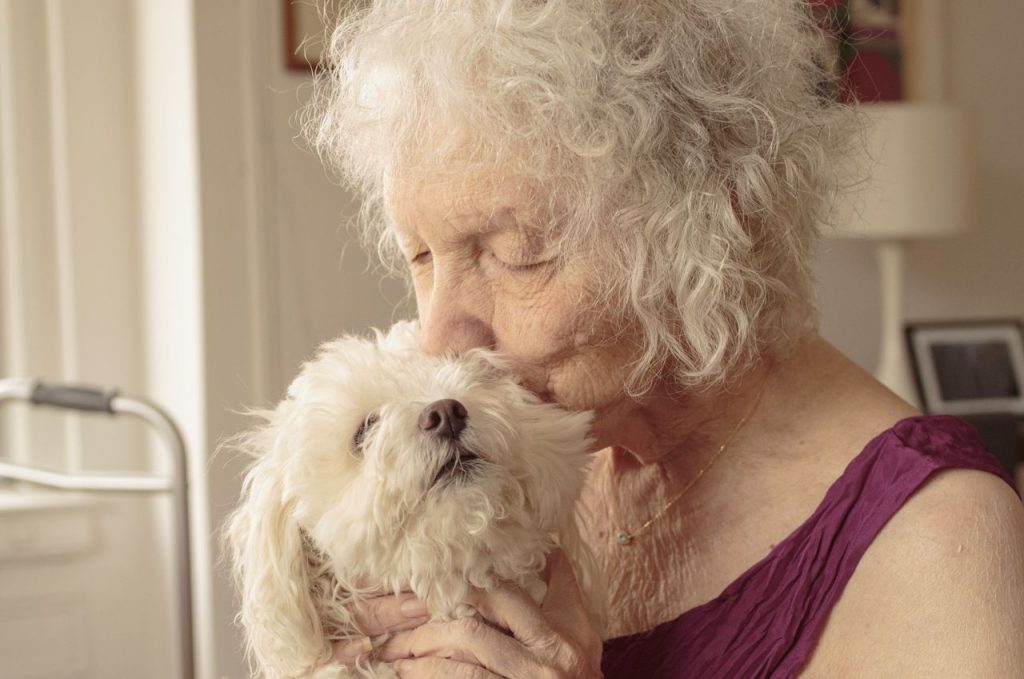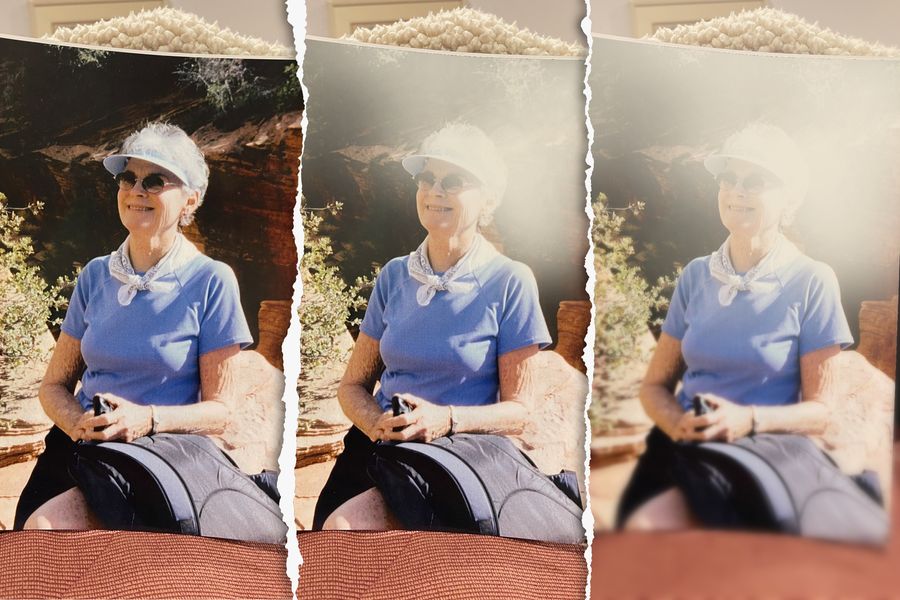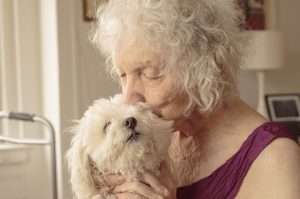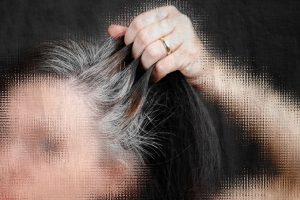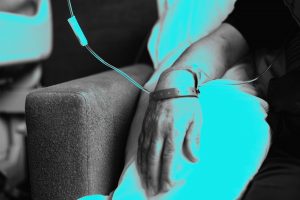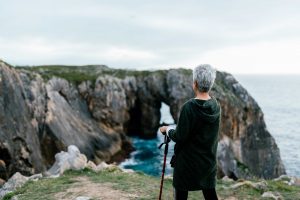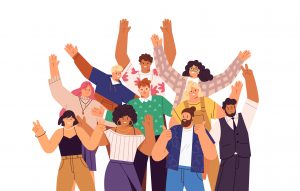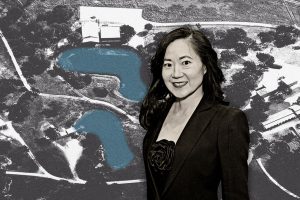My mother slipped into dementia in her early 90s. By then, I was a wife, mother and grandmother. I had an established career. I had, it seemed, mastered the roles that came with being an adult.
Or so I thought. As my mother’s dementia accelerated, my reaction surprised me. I knew I would be sad as her disease progressed. But it was much more than that. Her dementia sent me on an emotional journey that was both painful and revelatory, teaching me much about myself, my past and my relationship with my mother. It wasn’t easy, but in the end, through her transformation, I underwent my own.
None of that was foreseeable when, two years after the death of her second husband, my mother, at age 90, fell and shattered her kneecap. After surgery, her mind, which showed some mild dementia before the fall, deteriorated to the point that she could no longer live independently.
My younger brother, Carl, and I transferred her to the dementia unit of an assisted-living facility near my home. At first my concerns had to do with the practicalities of her new life—making medical decisions for her, selling her apartment, moving her belongings and managing her finances.
Gradually, though, my energy turned to the emotionally difficult task of adjusting to her dementia.
Where’s the worry?
One afternoon when I was visiting Mom, I found her seated in her wheelchair, asleep in the common room, facing the television, her torso listing to the left. She wore a Covid-mandated surgical mask that covered her mouth. Whenever I saw her, I was struck anew by her frailty, jolted out of my past image of her as an active woman—hiker, teacher and matriarch who had outlived two husbands.
“Hi, Mom, it’s me,” I said, rousing her awake.
“Oh. What’s that on your face?” she asked.
“It’s a mask, Mom.”
She appeared puzzled.
“I had Covid,” I said. “That’s why I haven’t been here the last two weeks.”
Before dementia, my mother would have fussed over me. She would have said, “Sherry, take care of yourself. Don’t do too much. I know how you are.”
I would have reassured her and said, “Mom, it’s OK. Don’t worry, I’m good. I had a mild case.”
What my mother actually said that day was, “Oooooooh,” and her hazel eyes searched mine.
It was a jarring moment. I realized that I had expected her concern and was unsettled by my feelings of neediness when it wasn’t there. Over the years I’d felt burdened by my mother’s worry about me, but right then, I was disappointed by its absence. Adulthood, marriage, parenthood, psychoanalytic treatment, my psychiatric profession—none of that had erased the imprint on my psyche of the girl I’d been, so connected to her caring. Now, I missed her fretting, which had been stolen away by dementia.
Remember yourself
Like many mothers and daughters, we had our conflicts over the years. As a teenager, I tried her patience. In middle school, after I purposely tanked my math grades to fit in with the math-hating popular girls, my mother said, “Sherry, I don’t understand this. You’re really smart. And so good at math and science. Whatever happened?”
She reminded me of who I was and in the back of my teenage mind, I squirreled away her words. I was good at math and science. Mom wouldn’t let me off easy. Though I pretended to forget my studious self, Mom safeguarded the true me—my abilities, my self-confidence, my dreams—at a time when I couldn’t.
Because she knew me, Mom was the person who for years kept me on my true path. I haven’t needed that guidance for decades. But I took for granted that it would be there. Suddenly, it was gone.
Even worse, as she was losing her memory, I wondered how much she recalled of who we were. I began to feel that the part of me connected to her was fading. Each time I saw her, not wanting to accept this new mother, I fished for recollections, reminding her of our story. Each time my efforts failed.
One day I was wheeling her around the grounds. We were looking out at the grassy hill beyond, when she said, “I used to take you hiking out there.”
I was thrilled that Mom had some memory of me as her daughter, even though the hike had never happened, so I tried to remind her of one of our actual times together.
“Mom, remember when Carl and I got lost at Disneyland?”
“What?” she said, as though I’d said something completely ludicrous.
But it had been a true story that Mom had repeated to friends over the years. I was 10 and Mom had put me in charge of Carl as the two of us rode the train around the theme park. I felt special to be so trusted. But we accidentally exited the wrong stop, and my parents were nowhere to be seen. My mother was beside herself with worry until a guard finally united us.
I tried to prompt her memory. “Disneyland, remember? When Carl and I got lost.”
Nothing. I could feel my relationship with Mom evaporating as I spoke.
A roller coaster of emotions
Still, I persisted in pressing her for memories. Sometimes, she would recall a past event, and I held on to the possibility that she would remember something that connected us. One day, for instance, while I visited, the support dog that lived on the dementia unit jumped up on Mom’s lap and licked her face.
“Oh, Puff,” she said and laughed. Puff had been our rotund orange cat, who curled up on the couch to watch the evening news with us when Carl and I were growing up.
“Mom, remember Puff?” I said.
I felt buoyed by her moment of recollection of our cat, thinking that we could have a conversation. But then, Mom gave me the blank stare I had grown to expect, and I deflated. My emotions had become a roller-coaster ride between hope and disappointment. She was there before me, yet not there, and I couldn’t let go.
As Mom’s dementia worsened, she became less aware of her deficits. She no longer complained about her muddled thinking. It was less anguishing for her but more isolating for me as I felt her lack of presence. So, I was relieved when my brother visited from out of town; having a sibling with a shared family history helped my loneliness.
On one of those visits, Carl took out his laptop and showed Mom pictures of his recent trip. My brother was a geology professor, so most of his vacations had to do with rock formations. Mom, who loved nature and the outdoors, had always enjoyed hearing of Carl’s adventures.
But as Carl scrolled through his pictures from the Cook Islands, Mom’s expression never changed.
Suddenly, I saw myself in my brother—his yearning for his relationship with our mother, in denial that the bonds of memory were frayed and breaking. I realized how much I, too, was holding on to my mother and clinging to our history together.
I couldn’t sustain this state of mind much longer.
The hardest moment
The final blow came on the day I understood that my mother no longer knew who I was. By then, Covid restrictions had ended, and I went, maskless, my full face in view, to see Mom.
“Hi,” I said.
My mother stared at me. I wanted to read recognition in her eyes. I wanted to ask her if she knew me. But I wasn’t ready to hear the answer.
Finally, I said, “Mom, it’s Sherry.”
No reaction.
“I’m your daughter.”
Complete silence as she looked me over. And then, the loss hit me as it registered that my mother didn’t know me. I had to let go and come to terms with the reality that my mother—the woman who knew me longer and better than anybody—was no longer there. Her memory, which held a unique part of me, had vanished. I was becoming a different person—floating and undefined, unmoored, motherless though she was there in front of me.
Who was I now?
I thought about this often. Then one day I found my resolve as I realized that as my mother’s daughter, my role had to shift. I couldn’t rely on her to remind me of who I had been or who I was. But I could become the guardian of the memories of our relationship. They were now my inheritance. I would gather them, sift through them, and as happens with cherished recollections, share and pass them down. Slowly, I began to accept this new role. As my mother had preserved my identity when I had lost it, I made it my purpose to store the memory of her and of us. It was my time to carry us forward.
Sherry Mendelson is a writer in California. She can be reached at reports@wsj.com .
